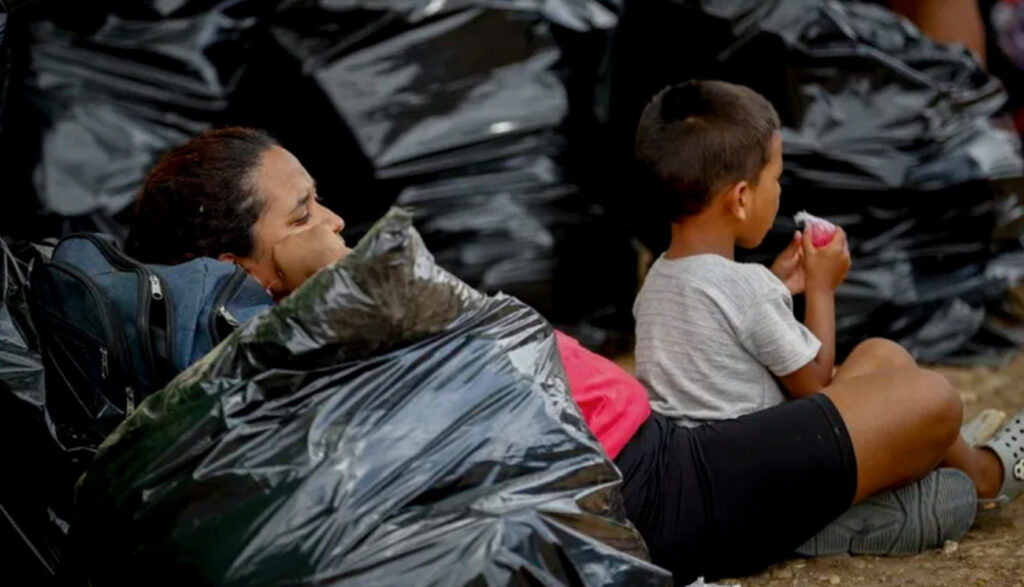So far this year, 104,000 adults have crossed, of which 35% are women

Moncho Torres/EFE, Bajo Chiquito (Panama), 4 May 2024 — Migration has long ceased to be something only for men. Women alone, with children or with their partners, leave their homes behind and cross through the “hell” of the Darién jungle, where they are victims of rape and robbery even while carrying their children. “¡Let’s go, we’re almost there!”
At the checkpoint of Bajo Chiquito, the first indigenous town that migrants come to after crossing the Darién, which is the jungle border between Panama and Colombia, the Panamanian authorities collect data from the hundreds of newcomers who, exhausted, are waiting patiently to take their turn. Behind the officials, apart, sits a girl. Suddenly, it seems that she has identified someone in the line.
“Do you know this girl?” the officer asks a woman. “Is she 12 years old?” she replies. They ask the girl and she nods. The officer then asks her if she knows where her mother is. “Yes, she’s coming further back.”
Venezuelan Karely Salazar, 31, travels with her 7-, 10- and 12-year-old daughters. They have gone to the village outpatient clinic. “The smallest one has a fever and a cold from spending two days in the river,” the woman explains to EFE, exhausted. “Their father is in Venezuela,” she adds.
“The smallest one has a fever and a cold from spending two days in the river”
“Thank God we crossed the jungle, but it really wasn’t easy, very difficult for the children,” she says. “Did your eldest daughter get lost?” “Yes,” the mother nods, and her face changes. She says that on the second day of walking her leg hurt and she couldn’t move, and the little girl walked into the crowd and “lost her way.”
“Last night I cried and cried be


